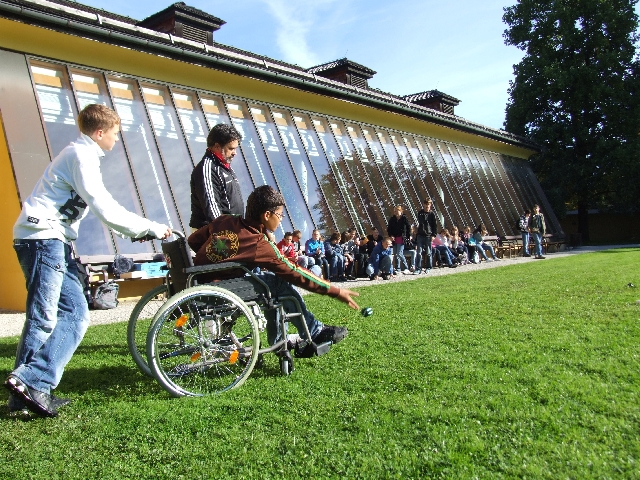What is Disability and Why Do Disabled People Need Accommodations?
Disability is a condition that limits an individual’s ability to participate in everyday activities. Disability can be physical, cognitive, mental, or sensory. A person with a disability may need accommodations to participate in school, work, or social activities. Disability is often misunderstood. It can be hard to understand what it is and why people who have disabilities might need accommodations. Disability includes a wide range of conditions, including physical, mental, and intellectual impairments.
There are many different kinds of disabilities, and each person’s experience is unique. Some people need accommodations to use public transportation or to access buildings. Others need help with tasks such as bathing, dressing, or grooming. Some people require support with communication or problem-solving skills. People with disabilities may need accommodations to participate in everyday activities. This might include things like wheelchair ramps or sign language interpreters. These accommodations can help people with disabilities to fully participate in society.
There are many reasons why it’s important to provide accommodations for people with disabilities. First, disability is a protected class under the law. This means that people with disabilities are entitled to certain rights and protections. Second, providing accommodations for people with disabilities can help to level the playing field. People with disabilities often face many obstacles in their lives, and accommodating them can help to remove some of these barriers.
What You Need to Know About Accommodating Disabled Customers
When hiring someone, it is important to make your business work for disabled people. There are a few key things to keep in mind when accommodating disabled customers:
First, always remember that everyone’s disability is different. What works for one person may not work for another. Be prepared to make some adjustments and be flexible.
Second, be aware of the laws that protect disabled people’s rights. There are many laws that vary from country to country, so it is important to do your research and make sure you are compliant. For example, The Americans with Disabilities Act (ADA) is a federal law that requires businesses to provide “reasonable accommodations” to disabled customers. This can include things like wheelchair ramps, interpreters, and Braille menus.
Finally, be proactive about accommodating disabled customers. Don’t wait for them to ask for help – go out of your way to make sure they have a good experience at your business.
How Should an Organization Respond if They Discover That Someone has Disabilities?
If an organization discovers that one of its employees has a disability, it should first assess what accommodations need to be made in order for the employee to continue working. If the disability is not readily apparent, such as a mental illness, the employer should ask the employee for documentation from a qualified professional.
After assessing what accommodations are necessary, the employer should work with the employee to put together a plan for implementing those accommodations. The employer is responsible for ensuring that the accommodations do not present an undue hardship to the business. If at any time the employer feels that they are unable to accommodate the employee’s disability, the organization should work with the employee to find a new job within the company that they are capable of doing. Otherwise, they must terminate employment in accordance with applicable laws.
5 Common Myths of Being a Disabled Person in Society
In society, there are many myths about people who have disabilities. People with disabilities are often told that their disability affects everything they do. This is not true. People with disabilities can do anything that anyone else can do, given the opportunity.
Another myth is that people with disabilities are all the same. This is also not true. People with disabilities come from all walks of life and have all sorts of different abilities and needs.
A third myth is that disabled people are pitiful and need to be pitied. This could not be further from the truth! Disabled people are just like everyone else and should be treated with respect and equality.
Fourth, some people think that having a disability means giving up everything you love. This is also untrue. Disabled people can do anything they set their minds to and still engage in their passions and hobbies.
Finally, some believe that disabled people are incapable of taking care of themselves and need constant help from others. This is also untrue, as many disabled people are perfectly capable of taking care of themselves with or without assistance.
Privileges Of Being A Disabled Person
There are many privileges that come with being a disabled person. One of these is accommodation. Disabled people often receive preferential treatment when it comes to things like seating, parking, and access to public buildings. This is because society recognizes that disabled people face certain challenges that non-disabled people do not.
Another privilege of being a disabled person is the ability to receive government assistance. This can include things like disability benefits, special education services, and tax breaks. Disabled people also often have access to special programs and services like Specialist Disability Accommodation (SDA) which are designed to help them live independently.
Finally, one of the biggest privileges of being a disabled person is the ability to receive accommodations in the workplace. This includes things like modified work schedules, assistive technology, and wheelchair-accessible workspace. They also get access to NDIS-investment properties where you buy an investment property with your own money and use it for maximum capital growth.
Also Read: Healthy Lifestyle After Retirement
